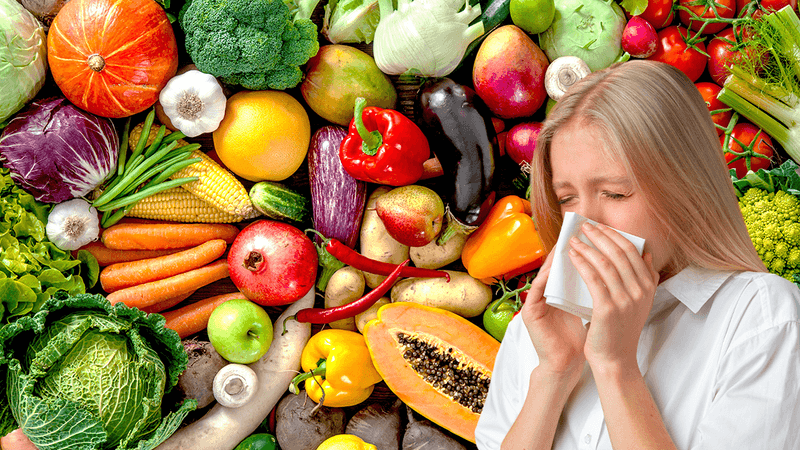The fourth anniversary of COVID-19 being declared a pandemic is almost upon us. In 2024, the availability of vaccines has made it a very different beast from the disease authorities were struggling to contain at the start of 2020. Since that time, we’ve learned much about the SARS-CoV-2 virus and its effects, but this research will continue for many years to come. A recent publication sparked a slew of new headlines about how a vegetarian or vegan diet could help protect against COVID-19, but some experts are not convinced that the study lives up to the hype.
What the study said
The research team used data from a group of 702 Brazilian adults recruited between March and July 2022, splitting them into omnivorous (424 people) or predominantly plant-based (278 people) groups according to their declared eating habits.
The plant-based group was then further divided into two categories: flexitarians, defined as those who ate meat no more than three times per week; and a vegetarian/vegan combined category.
Among the entire group of 702 people, 330 (47 percent) reported having had COVID-19 – 224 with “mild” symptoms, and the remaining 106 with “moderate” symptoms.
Analysis of the data indicated that the omnivores had a significantly higher reported incidence of COVID-19 than the plant-based groups (52 percent vs. 40 percent) and were more likely to have had a rougher time of it, with 18 percent reporting moderate to severe symptoms (vs. 11 percent).
The plant-based groups had fewer pre-existing medical conditions, higher rates of physical activity, and lower rates of obesity, all things the authors point to as potential risk factors for COVID-19 and its complications.
Overall, and after correcting for confounding factors, the study concluded that those following a mostly vegetarian or vegan diet were 39 percent less likely to become infected that those eating an omnivorous diet.
Taking that headline figure in isolation, it would be easy to conclude that changing your eating habits might go a considerable way towards protecting you against what can still be a deadly disease. But things are rarely that simple, unfortunately.
What are the limitations?
The paper’s authors state: “We recommend the practice of following plant-based diets or vegetarian dietary patterns.” However, some experts who were not directly involved in the study believe that this recommendation is too premature.
“I think that this study can’t provide substantial evidence for this recommendation with regards to COVID-19 infection,” commented Professor Margaret Rayman, a professor of nutritional medicine at the University of Surrey. Professor Rayman then went on to cite evidence from other studies suggesting that some important nutrients that may help people fight COVID-19 are actually easier to obtain from an omnivorous diet.
Dr Gavin Stewart, a senior lecturer in evidence synthesis at Newcastle University, also took issue with the conclusions based on the relatively small sample size and the observational nature of the study.
“This work presents interesting data but the authors conclusions do not adequately reflect the uncertainty inherent in small observational studies that are not designed to assess causal relationships. The conclusion that plant-based diets have a preventative role in COVID-19 infection is premature and not warranted,” Dr Stewart said.
To the study authors credit, they do clearly state in the paper that both the dietary information and COVID-19 infection history were self-reported. This type of data collection always introduces bias – people may consciously or unconsciously give an inaccurate account of their eating habits, for example, and some people may have had asymptomatic COVID and thus not be aware they’ve been infected.
“The main problem is that, despite the finding that people who ate plant-based diets had lower incidence of COVID infection than people who ate omnivorous diets, we just can’t be sure whether this correlation is caused by the type of diet they say they eat, or by something else,” elaborated Professor Kevin McConway, Emeritus Professor of Applied Statistics at the Open University.
Professor McConway acknowledged that the researchers had performed statistical adjustments to try to account for the many factors that could have influenced the results, such as pre-existing medical conditions in the different groups, but it’s almost impossible to cover all your bases.
“This doesn’t rule out the possibility that diet type does, to some extent at least, cause differences in infection risk, but it does very clearly mean that we just can’t be sure about cause and effect from this study.”
So, should we all be changing our diets?
“There are, of course, many reasons why people might want to increase the amount of plant-based food in their diets, apart from any effect that might possibly have on COVID infection risk,” said Professor McConway. For example, many adopt a plant-based lifestyle out of concern for the environment or due to an ideological objection to consuming animal products.
Changing your entire lifestyle based on this one study alone is likely unwarranted, given the caveats highlighted by the authors themselves and by the experts quoted here. However, it is worth remembering that the “plant-based” group in the study did include the so-called “flexitarians”, who still ate meat but just less frequently.
With that in mind, even if the conclusions of the study do end up being supported by future research, it could be the case that adding more vegetables and legumes to your diet, and switching it up with the occasional meat-free day, could be enough to see some reduction in your risk of getting COVID-19, whilst maximizing your chances of getting in all the nutrients you need.
Maybe the answer is not to adopt an entirely new diet plan. Maybe the key – though, admittedly, it makes for a less sexy headline – is the age-old maxim, “Everything in moderation.”
The study is published in BMJ Nutrition, Prevention & Health.
All “explainer” articles are confirmed by fact checkers to be correct at time of publishing. Text, images, and links may be edited, removed, or added to at a later date to keep information current.
The content of this article is not intended to be a substitute for professional medical advice, diagnosis, or treatment. Always seek the advice of qualified health providers with questions you may have regarding medical conditions.





